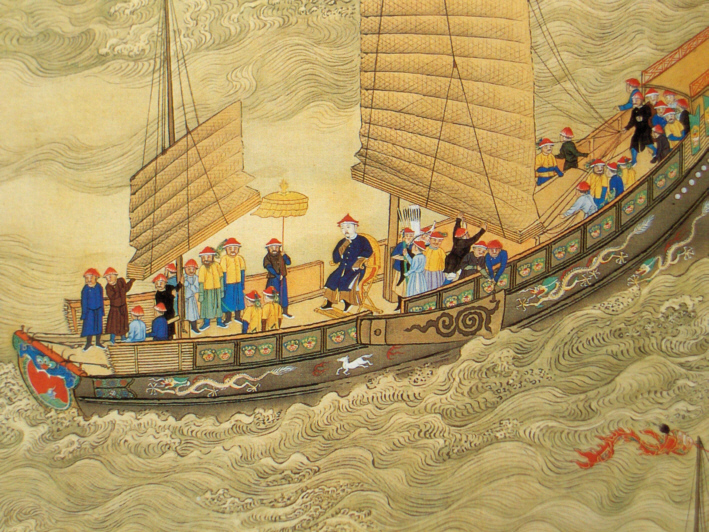Spreekt u Nederlands? Parles-tu Français? ¿Hablas Español? 你會說中文嗎?If you understood any of these questions and you are reading this article in English, it means that you are part of the growing global multilingual community. If this is not your case, there is nothing to worry about. The path to learn a foreign language has never been so easy.
Learning another language is probably one of the most common goals among us. The possibility of speaking with people from other cultures, finally understanding the lyrics of a song that you have been singing since childhood, or learning alternative ways to express your ideas may be reason enough to commit yourself to this endeavor. In practice, however, it may feel like no amount motivation is enough to keep us consistent. And this is, indeed, the greatest challenge a language learner can face.
Define your motivation to learn a foreign language: ‘why power’ vs. willpower
In his book “The Compound Effect,” Darren Hardy explains why relying on willpower to achieve a goal often results in abandoned projects and disappointment. He indicates that as opposed to willpower, which is based on self-control and probably a hint of guilt; our “why power” has the greater ability to fuel our persistence.
By figuring out our “why” and the core motivation behind a project, we are able to engage our hearts and souls in the task, and thus stick to our goal during the most difficult stages of the journey. This, Hardy says, leads to fulfillment.

The process of learning a foreign language can benefit from this perspective. The very first step of creating a comprehensive language learning routine is defining our “why.” How do you see yourself when you master the new language? Who would you like to speak with? Where would you like to travel? What would you like to write using this new language? What kind of music in that language would you like to listen to? When we find the answer to these questions, success is bound to be in sight.
Being bilingual was not always a good thing
Although it may be hard to believe, being bilingual was considered a handicap before 1960. Scientific studies back then indicated that bilingualism slowed a child’s development by making them spend too much energy distinguishing between languages. However, it was later found that these studies were largely flawed and had dismissed several factors.
Success
You are now signed up for our newsletter
Success
Check your email to complete sign up
According to Mia Nacamulli, an educator and Ted-Ed writer, recent studies have shown that while reaction times and errors increase in bilingual individuals, the effort they put into switching between languages results in a strengthened dorsolateral prefrontal cortex.
This area of the brain plays a vital role in executive function, problem solving, switching between tasks and focusing while filtering relevant information. Thus, although learning a new language may not necessarily make one smarter, it makes our brain healthier, complex and more attentive.
Cultural benefits of learning a new language
Learning about a culture through its language can be a highly insightful experience. The origin and development of a language entails historical and even political factors that uniquely shape its structure, sound, appearance and meaning. The authentic nature of each language is manifested in words or expressions that can hardly be translated into other languages and contain a rich social and emotional context.
The Portuguese and Galician word “saudade” is a telling case as it has no direct translation in English. Portuguese writer Francisco Manuel de Mello defines it as “a pleasure you suffer, an ailment you enjoy.” This feeling can be described as a melancholic nostalgia or longing for something that cannot be had again, and yet entails a feeling of joy rooted in pleasant memories. It is believed that “saudade” obtained its rich meaning during the Great Portuguese Discoveries, when men departed on journeys to unknown seas and women and children suffered their absence, holding the hope of seeing them once again.

Making new friends and visiting new places are another cultural advantage of learning a second language. The possibility of gaining new perspectives, sharing your views and having profound conversations, creates the perfect scenario for self-improvement and the development of empathy and tolerance.
Making yourself proud
Language learning has no shortcuts. The degree of discipline and self accountability that this process demands is proportional to the feeling of satisfaction of a committed learner. The small yet significant achievements along the way make the language learning process one of delayed gratification.
The simple acts of sleeping a little less to complete our daily lesson or sacrificing comfort to remain consistent, are met with great rewards at the end. Looking back at our progress is likely to boost our self esteem and confidence.

However, a crucial point must be made. Discipline is not sustainable if not grounded on Self-Compassion. By taming the critic within and cultivating patience, we will be able to set realistic expectations and decipher our particular learning styles. We may even feel encouraged to try new approaches to learning.
Physical changes
Each language has its own set of vowel and consonant sounds. Each of them is produced by changing the shape of our tongues and lips, and directing the airflow through our mouth and nose.
While for native speakers the differences in pronunciation are clear and distinct, new learners have to take up the task of training their ears. The possibility of mixing up two words with completely different meanings, can result in awkwardly laughing during a serious conversation or not laughing in time when a joke is told.
Training our mouths is just as important. New alphabets and phonetics may require new tongue positions and the use of other spots in our mouths such as the back of our teeth and our palate. Getting familiar with the new sounds may be difficult at first but it can be achieved by paying detailed attention and diligently mimicking native speakers until we grasp what makes each sound different from the others. Do not be embarrassed to look or sound funny. Every language learner goes through this stage.
Not pronouncing words properly can put you in the spotlight during a conversation. If during a meal in France you want to make allusion to the delightful fish “pwahs/soh” being served but you make a minor mistake calling it “pwa·zon” (poison), you may see your guests’s facial expression suddenly change.

Physical changes in the brain of a language learner are also worth mentioning. Bilingualism has shown to increase the density of the grey matter which contains most of our neurons and synapses. Also, the constant workout of the brain when switching between languages has also proven to delay the onset of various diseases such as Alzheimer and dementia. These reasons alone are often the motivation for many individuals who choose to start learning a language during their later years.
A little tale about discipline
Chinese emperors are known in history for leaving behind rich legacies of morals and righteous behavior. Emperor Kangxi of the Qing Dynasty, the longest-reigning emperor in recorded Chinese history, can shed some light on how to become diligent in our language learning adventure.
Kangxi established the tradition, common among Qing Dynasty emperors, to hold an early morning meeting with court officials every day. Even when a severe earthquake hit Beijing, this exemplary emperor still held his morning meeting as usual.
When the capital city saw heavy rains, snowstorms or extreme temperatures; many of the court officials would be absent from the meeting. Nevertheless, Emperor Kangxi made sure that he was present every single day. “I have done this for over 30 years and it has become a routine,” he said. “I would feel uneasy if I missed a meeting. Plus, if we met just once every three or four days, I might slack off in time.”

Emperor Kangxi repeatedly exhorted later generations to make the best use of their time. He explained, “It is said in the I Ching (Book of Changes) that it’s a great virtue to make new progress every day. One must take a step forward each day so as not to waste precious time.”
The exemplary Kangxi is an accurate illustration of the effectiveness of defining our “why.” To him, the cultivation of virtue and daily self-improvement were the core motivation to working diligently and doing his best every day with no exception. By following his example of consistency and self-accountability, we may find inspiration to work hard towards our goals, and even realize that language learning is not far from those noble objectives of becoming the best version of ourselves.







